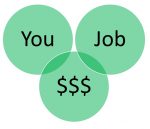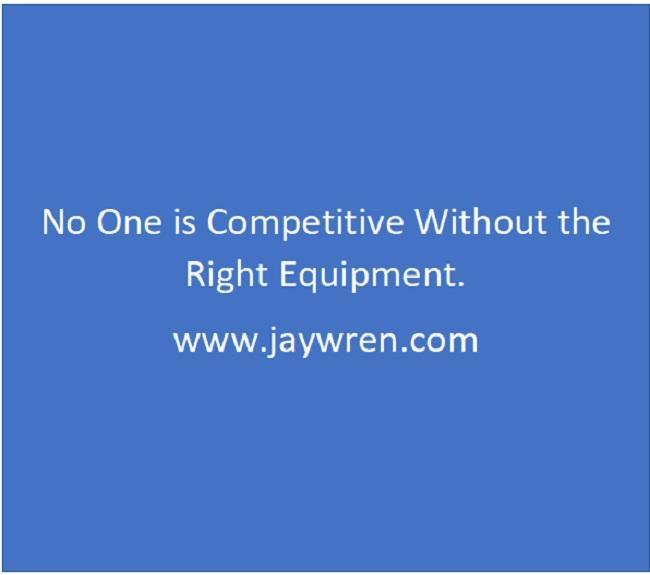How you negotiate salary depends on many things.
Here are three of the things that affect how you negotiate salary.
The size of the company: Larger companies have structured compensation plans. The plans have pay grades. The pay grades have three levels: entry range, mid-range, upper range. Smart hiring managers don’t hire people into the upper range of the pay grade. If they did, they could not give the person a pay raise without promoting the person.
The level of the job: For entry-level jobs, companies pay at or slightly above the market minimum, or entry range, for inexperienced people. Companies pay all inexperienced people closely the same amount. As a person gains experience, their compensation package becomes more complex and varies more greatly. Job seekers have greater differences in their compensation based on their time in industry, their performance, and generosity of the hiring company.
The type of compensation plan: Some companies pay based on performance. People who perform better receive higher bonuses or commissions. I have seen medical sales jobs and marketing service sales jobs where the base salary was half what a person had made in base salary at their previous company. However, the performance compensation was three to four times their compensation at their previous job.
You can do many things to have a successful salary negotiation.
Here are three things to do to win when you negotiate salary.
Know the numbers: It is easy to know the value of a job in the marketplace. There are pay range calculators online. The top sites are Salary.com and Payscale.com. Use these calculators.
Save everyone’s time. Put compensation on the table before you start. Ask the recruiter or hiring manager what the salary range is before you go to the interview. During the first interview, ask the interviewer what the salary range of the job is. You are not asking what they plan to offer you. You are just clarifying whether your interviewing for the job is worth their time and yours.
Show the benefits. Have solid reasons why you need the compensation you expect. Show how your reasons benefit the needs of the hiring company.
Related articles.
- What Not to Say in a Job Interview
- How to Negotiate Anything
- What Not to Say in a Job Interview
- Why You Should Never Accept A Counter Offer When You Resign
- The Things to Understand About a Job Offer
- 5 Interview Tips for Getting a Job Offer
- How To Turn Down A Job Offer
- 6 Things To Know Before Accepting A Job Offer
- Jobs: How to Negotiate Anything from Pay Raises and Promotions to Job Offers
- Counter Offers: The Reason That You Resigned Seldom Goes Away If You Stay.
- Counter Offers: The Stress of Trying to Leave a Company
- What to Say in a Job Interview
Good luck with your interviews and negotiations.

